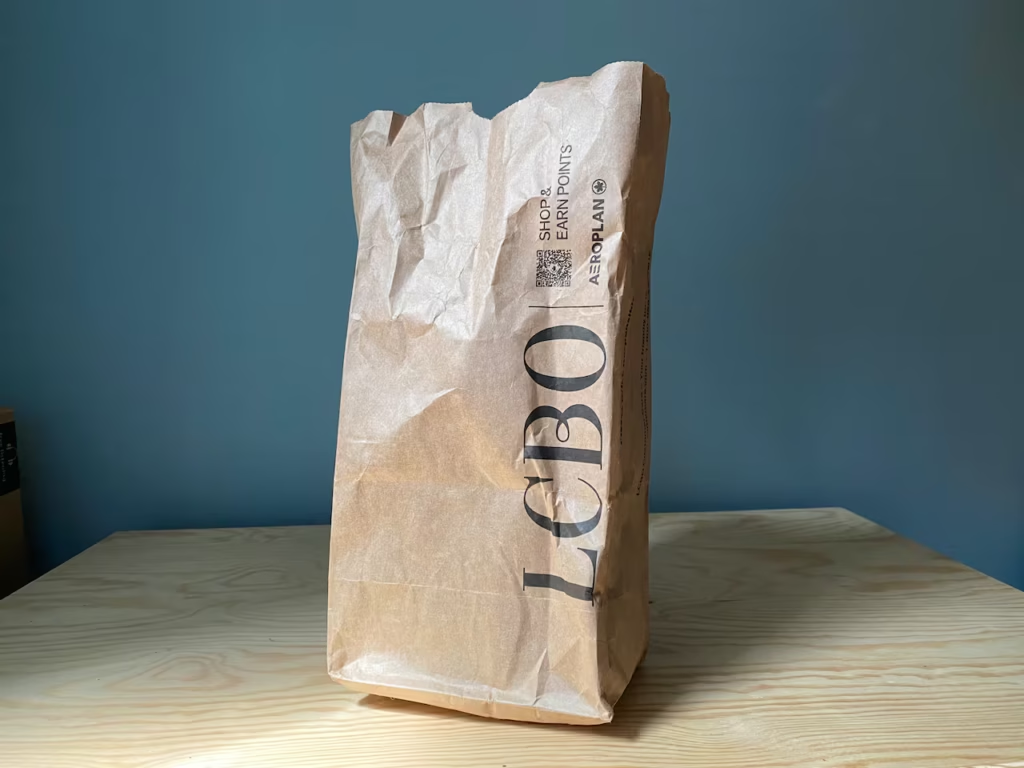
The Ontario government-run retailer, the Liquor Control Board of Ontario (LCBO), has announced that paper bags will once again be available for customers in its stores. This decision marks a significant policy shift, reversing a move that had been put in place to promote environmental sustainability. Understanding the details surrounding this change and the broader implications is essential for those who follow environmental policies, retail practices, and government decisions.
The LCBO’s Previous Shift to Sustainability
In September 2023, the LCBO took a significant step toward reducing its environmental footprint by eliminating paper bags from its retail stores. The initiative was part of a broader effort to minimize waste and lower carbon emissions. According to the LCBO, this decision was aimed at removing an estimated 135 million paper bags from circulation annually, contributing to a substantial reduction in the retailer’s environmental impact.
The Environmental Impact of Paper Bag Removal
The removal of paper bags was touted as a significant stride toward sustainability. The LCBO had calculated that this move would save the equivalent of 188,000 trees each year and divert over 2,600 tonnes of waste from landfills. Such statistics were crucial in portraying the LCBO’s commitment to its environmental goals. The decision also aligned with the increasing push from consumers and environmental groups for businesses to adopt more sustainable practices, including reducing plastic and paper waste.
However, the move was not without its controversies. Despite the environmental gains, the elimination of paper bags led to complaints from consumers, who were forced to purchase reusable bags at an extra cost. The cost of these reusable bags became a point of contention, especially for families already facing financial strains.
The Shift Back to Paper Bags: Government Intervention
In early 2024, Ontario Premier Doug Ford intervened, expressing concern about the financial burden the ban on paper bags was imposing on Ontario families. He argued that the additional expense of reusable bags was an unnecessary burden, especially during challenging economic times. Premier Ford wrote a letter to the LCBO’s president and CEO, urging the retailer to reconsider its decision.
The Decision to Reintroduce Paper Bags
Following this intervention, the LCBO began the process of reversing its decision. In a statement, the retailer confirmed that it would reintroduce paper bags to its stores. This change was expected to occur in the “coming weeks,” as the LCBO worked with a new supplier, Rosenbloom Groupe Inc., a Quebec-based company, to finalize production details and timelines. The contract for the new paper bags was valued at approximately $10 million, a substantial financial commitment.
The LCBO emphasized that the selection of the new paper bag vendor was conducted through a fair and transparent procurement process. A public Request for Quote (RFQ) was issued, allowing multiple suppliers to compete for the contract, ensuring that the final decision was based on the best value for the government-run retailer.
The Political and Public Reaction
Political Responses to the Paper Bag Controversy
The decision to bring back paper bags was met with mixed reactions from politicians. Premier Ford’s intervention was supported by some, especially those concerned with the added financial burden on consumers. However, opposition politicians criticized the decision, arguing that it distracted from more pressing issues. Some viewed the move as a regressive step that undermined the environmental progress made by the LCBO.
Despite these concerns, the government stood by its decision, emphasizing the importance of alleviating the financial strain on Ontario families. Premier Ford stated that he did not want people to worry about additional costs, especially in a province where economic challenges were already prevalent.
Public Sentiment
Public reaction to the reintroduction of paper bags has been similarly divided. Some consumers expressed relief at the return of paper bags, appreciating the convenience they provided. Others, however, remain committed to the environmental benefits of reusable bags and continue to advocate for more sustainable packaging solutions.
The decision to phase out paper bags initially was met with approval from environmental groups, but now, the reintroduction is seen as a setback in the ongoing battle against waste and pollution.
Key Implications for the LCBO and Ontario Consumers
Environmental Trade-offs
One of the primary concerns surrounding the reintroduction of paper bags is the potential environmental trade-off. While paper bags are biodegradable and generally considered more eco-friendly than plastic, they still require significant resources to produce. The process of harvesting trees for paper pulp and manufacturing the bags results in carbon emissions, even if the bags are recycled afterward. The challenge for the LCBO will be to strike a balance between environmental sustainability and consumer demand for convenience.
The Future of Reusable Bags and Sustainability at the LCBO
As part of the LCBO’s ongoing sustainability efforts, the company may explore new ways to encourage the use of reusable bags. This could include further education on the environmental benefits of reusable bags or providing incentives for customers who bring their own bags. Additionally, there may be opportunities for the LCBO to invest in innovative, eco-friendly alternatives to traditional paper and plastic bags, such as biodegradable materials or packaging made from recycled materials.
Conclusion
The return of paper bags to LCBO stores highlights the complexities of balancing environmental sustainability with the practical needs of consumers. While the initial decision to phase out paper bags was aimed at reducing waste and promoting environmental responsibility, the intervention by Premier Doug Ford underscores the financial challenges faced by many Ontarians. As the LCBO moves forward with its new paper bag vendor, the public and political debate surrounding the issue will likely continue. It remains to be seen whether this reversal will be a temporary measure or part of a broader strategy to improve the environmental impact of Ontario’s largest alcohol retailer.
